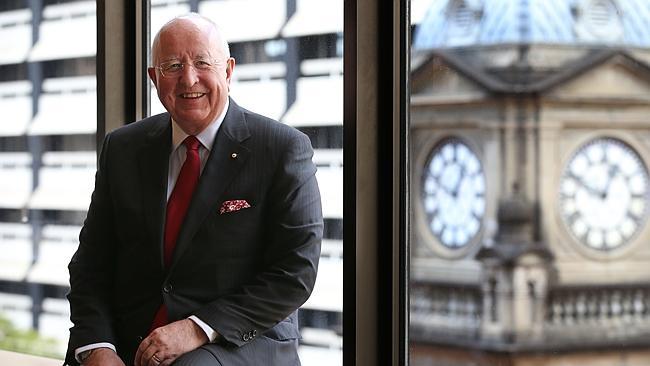Sam Walsh warns Rio Tinto investors of uncertain times
Sam Walsh has used his final Rio annual meeting as boss to warn investors not to get carried away with price gains.

Rio Tinto managing director Sam Walsh has used his final annual general meeting in the role to warn investors not to get carried away with recent commodity price gains and that there could be more pain to come, including in iron ore.
Nearing the end of a 3½-year stint in which he helped turn a floundering resources giant into what he says is the world’s most profitable miner, Mr Walsh said global uncertainty meant it was too early to say the market had bottomed.
“Some people can see a bit of an uptick and I don’t know if it’s hope or what, but you’ve got to look at the fundamentals and I think the world is still an uncertain place,” he said after the company’s meeting in Brisbane yesterday.
“The world hasn’t recovered totally from the global financial crisis and in that sort of environment, with a range of issues, whether it be immigration in Europe, whether it be Brexit, whether it be the US election, whether it be Chinese PMI (data), there are a range of issues that are still uncertain.
“In that environment, calling the bottom is a brave move. It will turn though, it’s a cyclic industry.”
The comments come after the man Mr Walsh replaced as Rio chief at the start of 2013, Tom Albanese, last week said he thought the metals sector had bottomed.
Mr Walsh said iron ore markets could be in for more pain, despite the government’s raising of its budget’s iron ore price assumption for 2016-17 of $US55 a tonne, which is above analyst consensus of about $US46 a tonne.
“Whether the government’s forecast proves to be right, time will tell,” he said. “I am somewhat more negative than some of the other people that are saying the market has actually bottomed.
“There is additional supply coming on, Vale are bringing on more, (Gina Rinehart’s) Roy Hill is bringing on more supply, FMG (Fortescue Metals) seems to be increasing their volumes progressively this year. Those will have an impact on supply and demand.”
He said a “wildcard” for prices was the Chinese futures market, where excessive volumes were influencing prices.
Mr Walsh, 66, will step down on July 1 to be replaced by 44-year-old Jean-Sebastien Jacques.
The transition comes after Mr Walsh oversaw a productivity drive that slashed $8 billion of costs and helped restore Rio’s battered reputation in the wake of the disastrous Alcan and Riversdale Mining takeovers.
He said with the company now in a strong, stable position, it was a good time to pass the baton to Mr Jacques, who he said would be a “great CEO”.
“I had an internal aim to move us to be the most profitable mining company in the world and I’ve achieved that for two half-years in a row,” he said. “We’re not the biggest in the world, but we’re the most profitable and that’s a good place to be. I am happy we were able to achieve that.”
The claim is one that irks rival BHP Billiton, the world’s biggest miner, where chief executive Andrew Mackenzie has previously responded by saying BHP has stronger margins before interest, tax, depreciation and amortisation than Rio.
Mr Jacques told the meeting his priorities would be to maximise free cash flow and deliver a “tier-one” growth pipeline at the right price.
Rio chairman Jan du Plessis said the miner planned to ramp up its West Australian iron ore operations up to their full 360 million-tonnes-per-year capacity in the next few years. But he said Rio had no intention of expanding its port and rail capacity beyond 360 million tonnes.
There were few fireworks at the AGM, where about 13 per cent of votes were cast against the remuneration report.
A resolution requisitioned by London pension funds for Rio to increase climate change disclosure was recommended by the board and overwhelmingly approved by more than 99 per cent of shareholder votes.
The Australian Council of Superannuation Investors, whose members hold more than $1.5bn worth of Rio shares, spoke in favour of the motion at the AGM.
ACSI governance head Ed John said Rio was the first major Australian board to support a shareholder resolution on climate change disclosure.
“It (the resolution) provides an opportunity for the company to demonstrate its approach to the strategic challenges posed by the transition to a low carbon economy,” Mr John said. “This is a critical issue for our members, who are long-term investors in Rio, and the Australian economy.”
Rio could approve the $US4bn Oyu Tolgoi underground expansion in Mongolia as early as today, with the board holding a meeting after the AGM and June quarter timetable for approval having recently been reaffirmed.
